Responsible Investment Policy
Polunin Capital Partners Limited (the “Firm”) believes that ESG considerations are part of the research and due diligence process to protect long term economic value of client holdings, and minimise reputational and stranded asset risks arising from environmental, social, and governance regulation and legislation. The approach, policies and reporting are overseen by the ESG & Sanctions Screening Committee, which is chaired by our CEO, with our Board of Directors taking ultimate responsibility for implementing the Responsible Investment Policy at the Firm.
The Board has determined that all members of the investment team will receive training on responsible investment. This training includes: reporting framework; outcome identification and assessment; engagement approach and best practice; and takes place every 6 months or more frequently as required.
Our responsible investment policy has been incorporated into our investment process and active ownership practices. Key elements of our approach are:
- Identifying sustainability outcomes;
- Screening and exclusion;
- Stewardship;
- Engagement.
Identifying sustainability outcomes
Investment activities can lead to positive and negative sustainability outcomes. UN Sustainable Development Goals (“SDGs”) help us identify and align sustainability goals with our investment objectives. These goals are reflected in internationally recognised frameworks that provide pathways toward a sustainable economy, society and environment. These frameworks include, but are not limited to, the UNFCCC Paris Agreement, the UN SDGs, the UN Guiding Principles on Business and Human Rights (“UNGPs”), the International Labour Organization’s Declaration on Fundamental Principles and Rights at Work and the eight core conventions, and the OECD Guidelines for Multinational Enterprises and Guidance on Responsible Business Conduct for Institutional Investors. In addition, through engagement with companies, and feedback from clients, we have identified the following 8 sustainability outcome objectives:
- Start publicly reporting on environmental impact such as greenhouse gas (“GHG”) emissions, water usage, and waste generation;
- Set targets on reduction of the above, in particular absolute GHG emission over 2026-35, and report on progress;
- Report on and commit to mitigating processes for physical climate risks;
- Introduce board-level oversight of sustainability risk management;
- Disclose diversity and inclusion data at different seniority level;
- Introduce time-bound targets and measures to improve diversity and inclusion performance;
- Achieve greater levels of board and senior management level diversity over time;
- Report annually on labour and human rights due diligence to identify, prevent, and mitigate risks at the company, as well as at the suppliers and contractors levels.
Screening and exclusion
We screen all investments against minimum standards of business practice based on international norms, for controversial practices that have adverse impacts on society and the environment in line with established expectations for Responsible Business Conduct. The framework consists of the Principles of the UN Global Compact, the OECD Guidelines for Multinational Enterprises and the UNGPs, and is embedded in the UN SDGs. Companies with verified failure to respect established norms are excluded, investees undergoing remediation or have alleged failures are prioritised for engagement. Please refer to our Exclusion Policy for exclusion criteria; clients may have specific policies on exclusions.
Stewardship
Polunin Capital references the UK Stewardship Code 2020 which encourages fund managers to exercise their active ownership responsibilities in monitoring, engagement and voting of their equity investments. The Firm’s statement on Stewardship is reviewed annually, and published on its website. Stewardship activity aims to maximise overall portfolio performance by addressing any systematic sustainability issues that may lead to portfolio wide risks.
Proxy Voting
As an active and engaged investor, we exercise the shareholder rights of almost all our clients. We consider voting rights as an important driver of change in conjunction with our engagement activities. Our Proxy Voting Policy covers key issues essential for the protection of shareholders and stakeholders; these include board structure and composition, remuneration and protection of shareholder rights, human and labour rights, diversity, carbon reduction, resource use, and protection of biodiversity. The policy is reviewed at least annually to ensure that emerging issues and evolving ESG best practice are incorporated, and engagement activities are reflected. Voting decisions are published on a quarterly basis on the Firm’s website, with explanation on controversial votes, and analysis and engagement details.
Engagement and escalation
Engagement is an integral part of our responsible investment. We work with portfolio companies to improve how they manage or disclose ESG performance or issues, or in response to events or queries. As the investment team carry out engagement activity directly, we are able to combine the monitoring of ESG risks with our nuanced understanding of companies’ operations and sector issues.
The focus on our engagement is based on the 8 sustainability outcome objectives above, plus material issues concerning a particular company or sector. We ask investees to make progress over 4 years on the outcomes, with escalation after 2 years if no improvement is recorded. As part of the escalation process we will consider publicly engaging with the board; withholding support on standard governance-related resolutions (such as director re-elections or approving the reports and accounts); and filing or co-filing shareholder resolutions. If remediation remains inadequate or ineffective after the engagement process, divestment would be recommended to the CIO.
As a Firm we believe there is strength in numbers when it comes to engaging with our holdings on certain topics, and for this reason we have chosen to join several collaborative engagement organisations. In 2021 the Firm became a signatory to the UNPRI and the CA100+, and published support for TCFD and the Paris Agreement on climate change. We also became a member of the Workforce Disclosure Initiative (“WDI”), conducted by ShareAction.
In instances where conflicts of interests arise during the performance of responsible investment and stewardship activities, the Firm’s Conflicts of Interest Policy and Code of Ethics will apply.
This policy will be reviewed and revised on an annual basis by the ESG & Stewardship Committee, and verified and approved by the Board of Directors.
![]()
